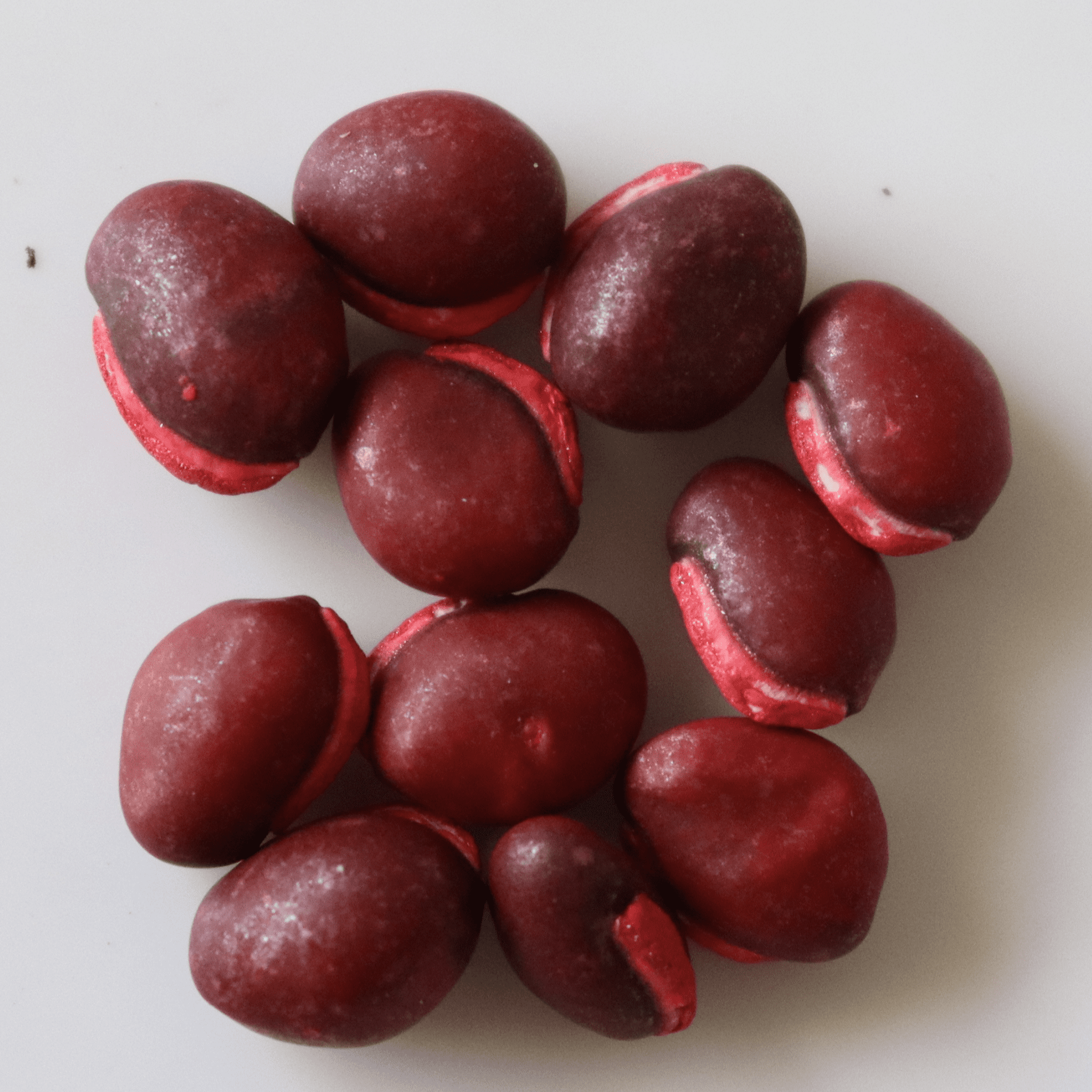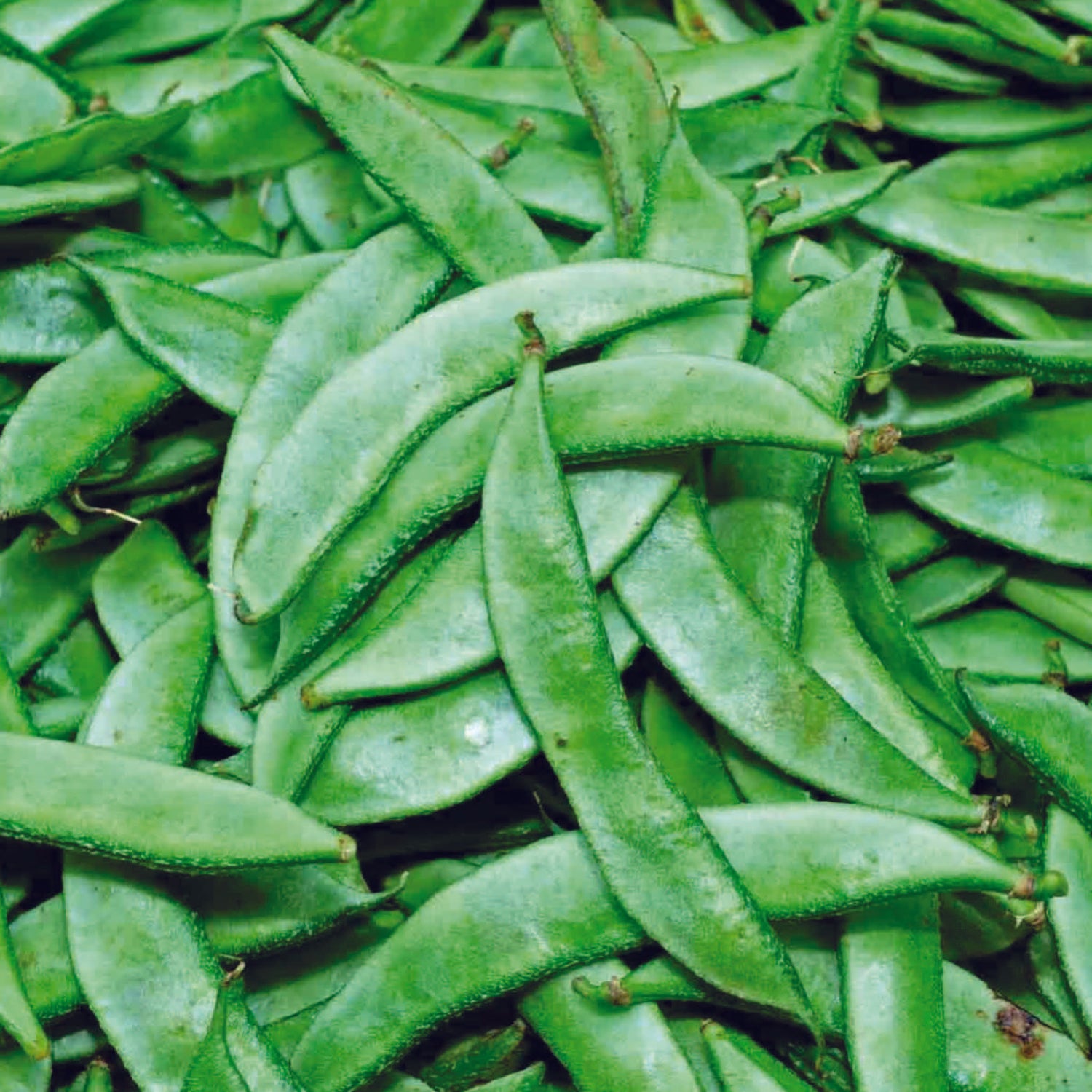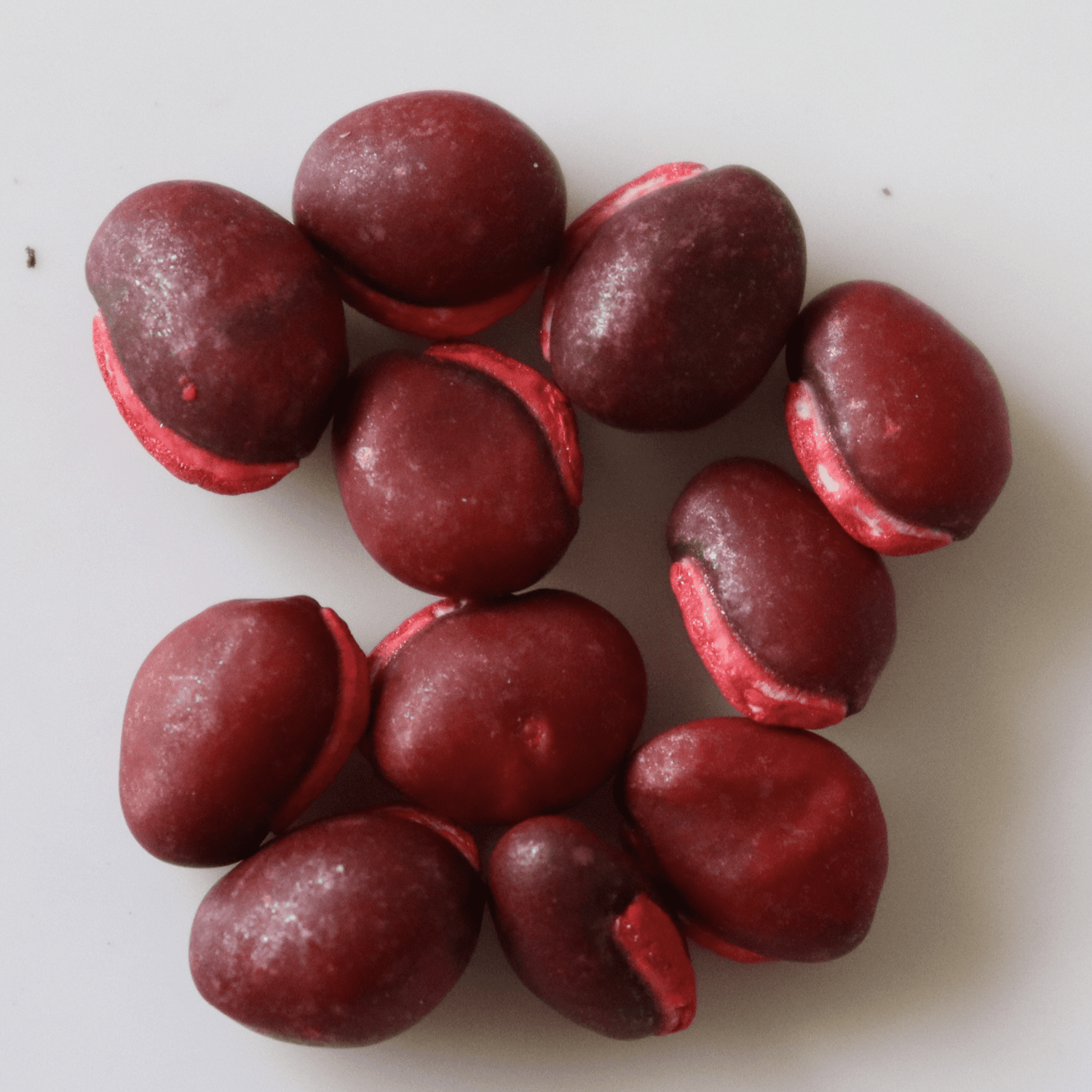

Product Description - Organic Dolichos Seeds - Open Pollinated
Dolichos bean is an important herb grown in the northeastern hill region known as Hyacinth bean or Indian bean. It's commonly referred to as Sem. The polar styles are cultivated in the household by bowing for the tender fruits used for cooking. It is a vegetable that is nutritive and is cultivated for use with green pods; green seed and dry seed as pulse as well. Green pods contain 3.8g protein, 1.8g fiber, 6.7g carbohydrates. Calcium 210mg, phosphorous 68.0mg, iron 1,7mg per 100g serving. It is also used as fodder and green fumes.
In the past, it was used as a drill, hay, and silage for livestock in this region. It is also used in fallow soil to fix nitrogen. At this time, as an ornamental crop in the cut floral industry, the most popular use is in this region. It is worthy of colorful peapods for its late summer flowers. The Dolichos bean is a pure twined wine and is cultivated for ornamental flowers and bean pods as an annual vine in its home garden. To sustain the weight of the wine, grow in a solid trellis or creeper net. It prefers light and damp soils in sunlight. Sunlight. The plant has passed after the risk of frost. In warm humid climates, it works well.
Benefits/Uses of Dolichos Seeds
- It is rich in Copper, which is important to maintaining mood, outlook, and attention in brain pathways, including galactose and dopamine.
- It is best used to prevent damage from free radicals and slow down the aging, neurodegenerative, and cancer process.
- Contains vitamin B1 that helps prevent cardiac disease because it preserves safe ventricular functions and also treats cardiac insufficiency.
- Minerals including selenium, manganese, and zinc help people with pulmonary problems such as a chronic blockage.
- It prevents bloating, stubbornness and indigestion.
- It decreases cortisol and sleep symptoms, improves sleep time, improves sleep performance, and reduces sleeping symptoms.
- Rich in iron.
Specifications of Dolichos Seeds
|
Common Name |
Hyacinth Bean, Lablab, Sarawak Bean, Seim Bean, Indian Bean, Dolichos Bean, Itab.sem |
|
Sunlight |
Full sun (6 or more hours of direct sunlight a day) |
|
Water |
Moist soil. |
|
Temperature |
70°F (21°C) |
|
Soil |
Neutral (6.0-8.0) |
|
Fertilizer |
Phosphorus (P) and Sulphur (S) |
|
Germination |
10 days |
|
Harvest Season |
about 7 or 8 weeks |
| No. of seeds | 12 |
Planting and Care for Dolichos Seeds
Sowing Dolichos Seeds
- Soak seeds overnight prior to planting to ensure good germination. If planting outdoors, sow the Dolichos seeds after the last spring frost in a sunny area in a grow bag; simply cover the seed with a light dusting of soil.
- They can germinate in approximately two weeks to one month at a temperature of approximately 21 degrees Centigrade.
Growing Dolichos Seeds
- Transplant seedlings when they have at least two sets of true leaves.
- Dolichos Bean Vine is a low-maintenance plant. Direct sunlight is ideal for growth. Plants prefer nutrient-dense, well-draining soils that support their fast, all-season growth. Incorporate a healthy dose of organic vermicompost into the soil prior to planting.
- Plants require an abundance of water and nutrients. Although they appreciate plenty of water, they despise wet soil. Maintain a moist but not wet soil. Fertilizer should be applied during the planting process and once a month during the growing season.
- Summer is when plants begin to flower and continue to do so until the fall. Purple pods may begin to develop following the blooming of the flowers. They can reach a length of three inches. Raw beans contain toxins. Maintain a healthy distance between children and pets. Boiling beans for a prolonged period of time destroys the venom and makes them edible.
- Since Dolichos beans are climbers, they will need help from a creeper net as they grow.
- Since Dolichos are only reliably grown from seed, avoid taking cuttings or splitting seeds.
- Dolichos are half-hardy perennials that are often grown as half-hardy annuals in the greenhouse.
- They are shrubby climbers that can grow up to 9 meters in height.
- Dolichos bloom with pea-like flowers in purple, yellow, or white from summer to the first frost of winter.
Precautions while growing Dolichos Seeds
It needs at least 650mm of rainfall per year in dryland conditions, but can thrive with as little as 450mm with proper moisture management and cultivation on deep soils with good water retention ability.
It is adaptable to a wide range of soil types as long as they are well-drained. Although it is recommended that the soil pH be greater than 5.5 for optimum production, it can tolerate lower pH values. It is tolerant of low soil fertility but reacts positively to applications of Phosphorus and Sulphur. Liming is often beneficial in acidic soils. Prior to establishment, it is important to perform a soil analysis.
Common Problems affecting Dolichos Seeds and Solutions
Infestations by insects and diseases are rare. Apply insecticides, repellents, or fungicides as required. Although some varieties of beans are self-fertile, others are not. Even self-fertile plants can produce more fruit with the assistance of pollinators. Although it may seem to be a good idea to pile on fertilizer, it frequently results in problems, especially with beans. Bean plants that obtain an excess of nitrogen will struggle to produce pods. This will also result in a reduction in the number of blossoms on bean plants as a whole. When temperatures rise too high, bean flowers wither. The intense heat stresses the bean plant, causing its blossoms to drop. Bean plants that are grown in overly moist soil will bloom but will not produce pods. Wet soil inhibits the plant's ability to absorb essential nutrients from the soil, and the bean plants are unable to produce pods. Inadequate water – Similar to excessive heat, bean plants that receive inadequate water become exhausted and drop their blossoms in order to focus on the mother plant's survival. Bean plants need between five and seven hours of light per day to produce pods, and between eight and ten hours to produce pods that are of high quality. Inadequate sunlight can be caused by incorrect plant location or too near planting of bean plants. Disease and pests will wreak havoc on a bean plant. Bean plants that have been weakened will prioritize survival over pod growth.
No. of Dolichos Seeds - 12






